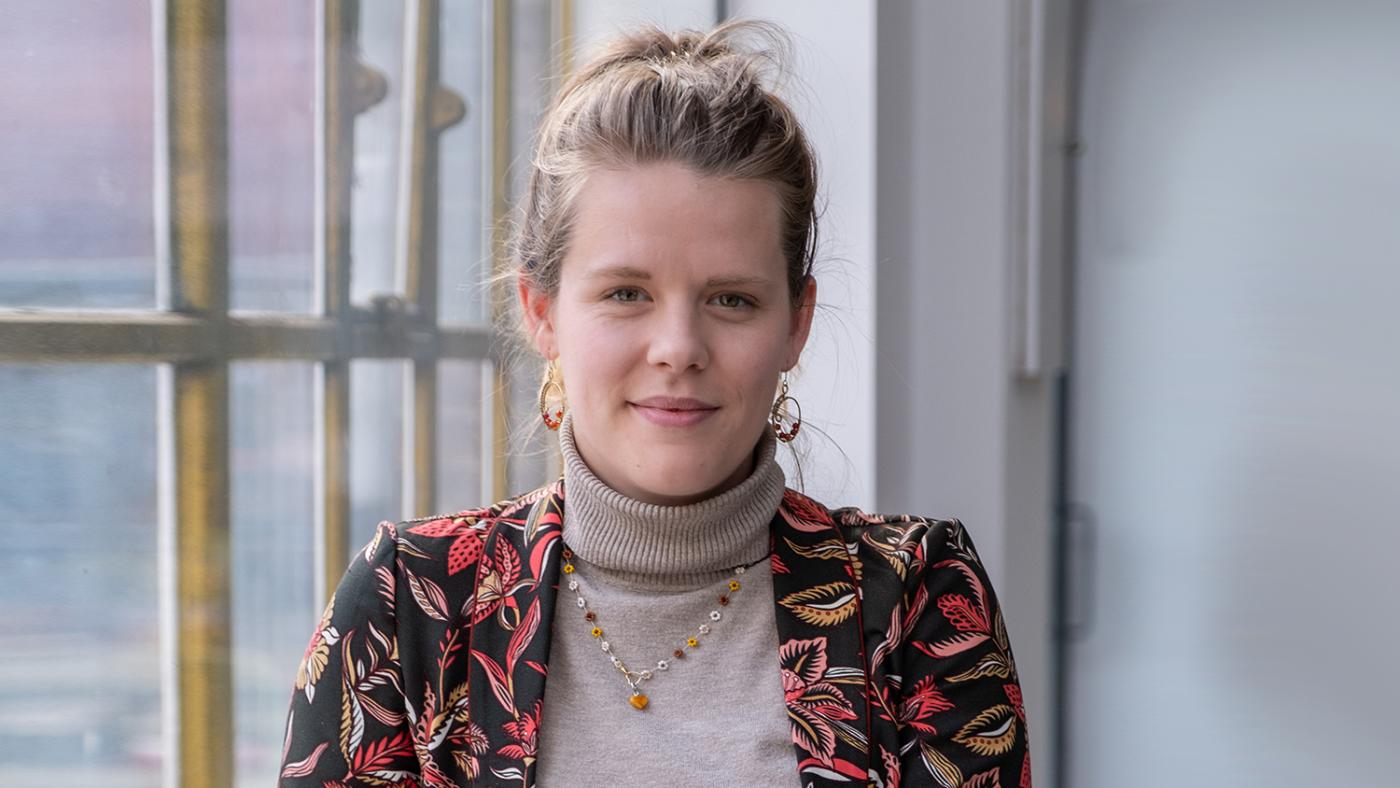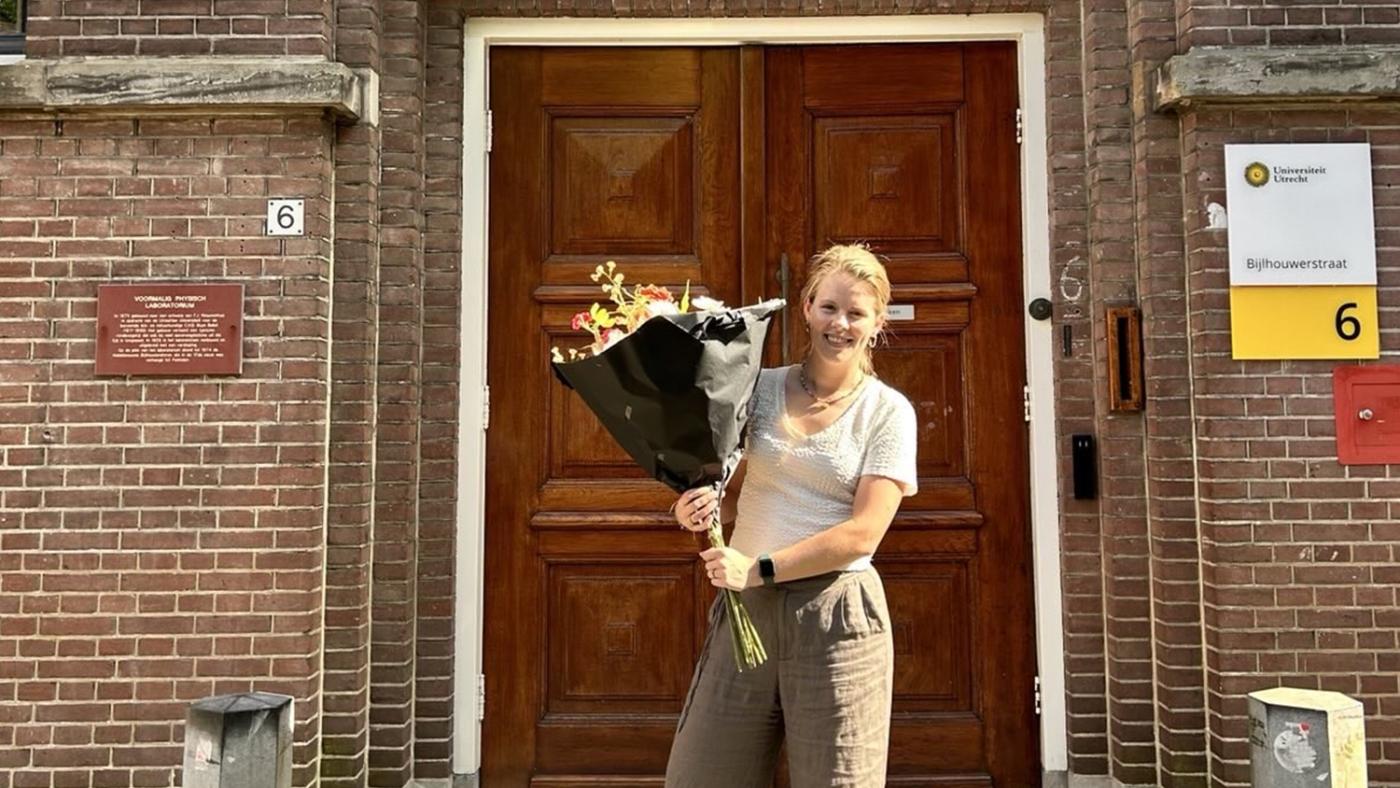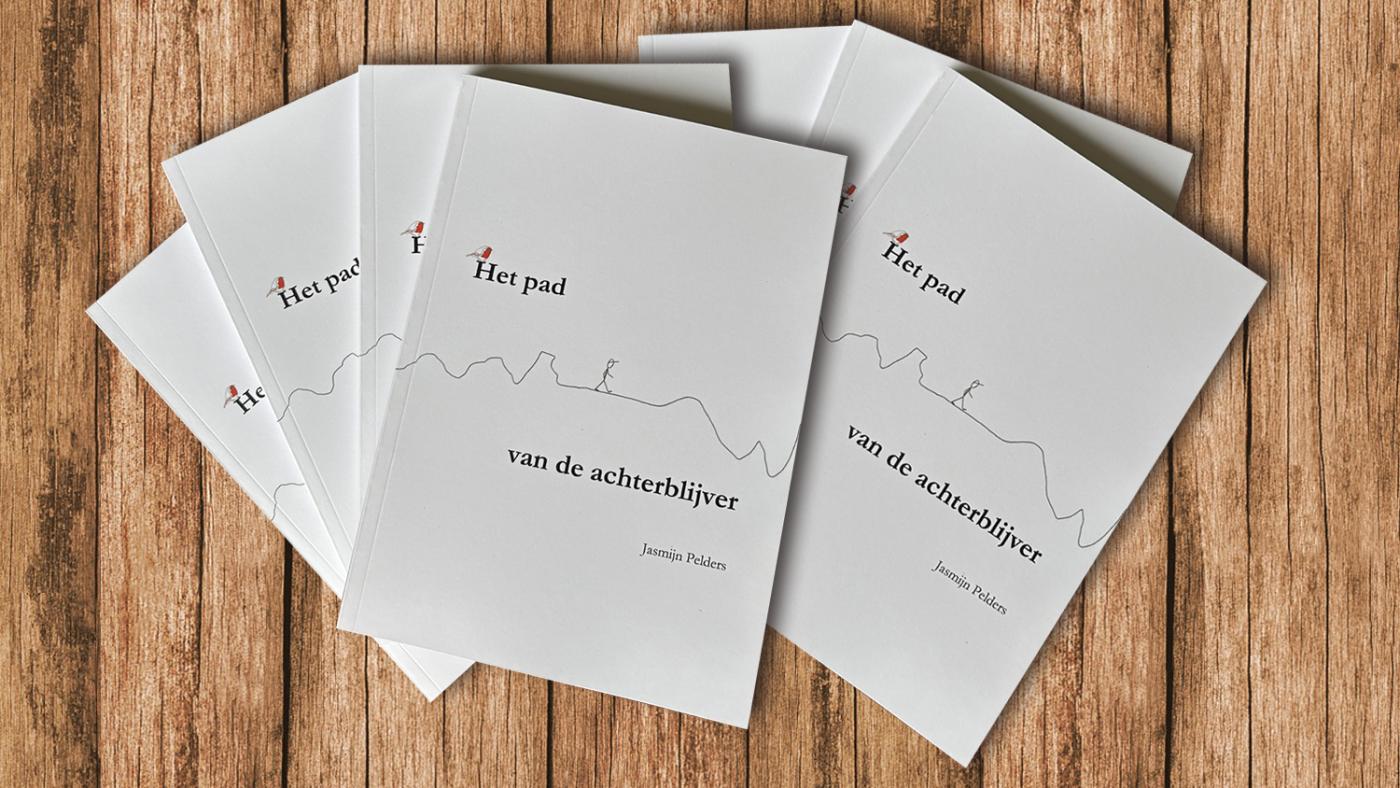Master's thesis with a collection of stories got a 9.5
How to move on when a fellow student takes their own life?

Jasmijn (25) experienced this first-hand when she lost two classmates to suicide in quick succession during her Bachelor's degree in Public Administration and Organisation Science. ‘My programme does not have many students, so not only do most students know each other, but the lecturers are also closely involved. The news that one of our fellow students had died hit us like a bombshell, and then another student died soon after, which felt absurd. They were two individuals, but for me it became one complex mourning period.’
She began writing down her feelings in her 'thought book' and reading them aloud. She also let her friends and family read her entries. ‘That way, the people around me knew what I was going through. It made me feel less lonely. Writing became a bridge between my inner and outer worlds.’
Ultimately, the thought book propelled her to devote her Master's thesis to this subject. She was pursuing a Master's degree in Organisations, Change and Management.
'Sharing grief often proves difficult'
Jasmijn had some doubts before she started writing her thesis. 'I wondered whether I wanted to delve that deeply into the subject. It's not a light topic, and people around you are bound to ask questions.' Yet she felt a strong urge to write about it. In her opinion, people need to pay more attention to how others deal with suicide.
The research question for her thesis was: 'What are the experiences of students who are or have been in mourning during their studies due to the loss of a fellow student or peer through suicide?' Jasmijn: 'A lot of research has been done on grief, but losing a peer to suicide while in college is an underexposed theme.'
Thanks to her network, Jasmijn found nine people who were willing to participate in the study. They all had experienced grief after losing a classmate or peer to suicide.
To answer her research question, Jasmijn interviewed the participants several times and used auto-ethnographic material. She incorporated her own experiences as an additional part of the research process. ‘Thanks to those experiences, I was able to add things or ask further questions during the interviews, which allowed the conversation to go even deeper.’
Her research shows that students seek space, both literally and figuratively, to mourn. ‘They are constantly balancing between everyday student life, where there often seems to be no place for grief, and the inner world of loss.'
'Many participants grieve in specific places. They have certain social circles where their grief can be present, but in other places, no one knows they have lost someone. If you lose someone from your sports club, for example, it may be that no one from your study programme knows about it. So, your study environment then remains “free” of grief, but it can also feel lonely when no one there knows what you are going through. At the same time, it can also be nice not to be forced to deal with it everywhere.'
Jasmijn was surprised by this finding because she had given herself space to mourn in all her social circles, thanks to her thought book. Now, she understands that others may have a hard time doing so.
Her results show that talking about grief is often difficult because mourners are stigmatised. ‘This prevents them from talking openly about suicide, out of fear of burdening or hurting others. In addition, feelings such as anger or disappointment, which can arise in the grieving process, can be seen as inappropriate. Many students who are confronted with suicide are not related to the deceased person and may therefore develop the feeling that they have less right to grieve.’

‘I would like to reach a wider audience’
One of the most remarkable aspects of Jasmijn's thesis is that it features a collection of stories. ‘I've been writing stories ever since I was a little girl. I love creative writing, and writing has been a valuable tool in my own grieving process. I also wanted to write something other than an academic paper for a change.’
Furthermore, Jasmijn believes that storytelling can be a form of science, just like poetry or theatre. ‘You appeal to a much wider audience this way. This is about more people, not just scientists. My goal was to bring this topic to the general public.’ The inspiration for this idea came from Jasmijn's supervisor, Noortje van Amsterdam, who also works with more creative forms of scientific research.
The collection contains a fictional story about four students who lose a mutual friend to suicide. 'Although the stories are fictional, they are based on real experiences, thoughts and feelings the participants have felt, or that I have felt myself. This creates space for recognition, acknowledgement and connection for all students going through something like this,' Jasmijn emphasises. 'The stories can contribute to raising awareness and breaking through isolation. That is extremely important, especially in cases of suicidal loss.'
'The stories gave me a lot of support'
Jasmijn often gets asked if writing the thesis helped her with her own grieving process. ‘Of course, it helped in a way, but I felt very strongly that I had already come to terms with that experience before I started writing the thesis. I wouldn't recommend doing such research if you're still deeply in mourning.’
As a precaution, Jasmijn counted on an external coach with whom she regularly monitored her well-being. ‘You can't know in advance how the information the participants will share will affect you. Fortunately, I found that sharing stories gave me a lot of support and energy to bring the research to a successful conclusion.’
The participants have now also read the collection of stories, and the reactions have been positive. Jasmijn: ‘I have spoken to all of them separately, which meant a lot to me, and I want the others to have that too. That's why I want to organise an afternoon for everyone to get together.’
Although it may sound contradictory, Jasmijn really enjoyed writing her thesis. ‘I wrote with real passion because I knew I was doing something good. The participants and I all feel that this topic should be discussed. It brings us a certain joy to devote time and attention to this.’
'This could also be discussed in a working group'
Jasmijn believes that her collection of stories could be valuable to everyone. ‘I would very much like to publish it, but it's a world I don't know yet. There are also ethical questions to consider. Do I want to earn money from it, for example? That's a tough one.’
Above all, Jasmijn wants grief to become a topic that people feel they can and should talk about. ‘There should also be room for grief in places where you wouldn't normally show it, such as in a working group,’ she adds.
She has also considered ways in which the university can contribute to this conversation. ‘The possibility of turning to study advisers and mentors when problems arise should not only be mentioned during the introduction week. Instead, this should remain visible throughout the year. The university could do this by having lecturers use a fixed opening slide with a QR code or link to information about support options.’
Moreover, Jasmijn believes that a buddy system could also support students. ‘Sometimes, students find it too daunting to discuss sensitive matters with a supervisor or lecturer. Having another student as a buddy could lower that threshold. This should be a long-term relationship because trust takes time to grow.’
Jasmijn will soon be showing her work at 113 Suicide Prevention. In November, she will also participate in an exhibition organised by Wie Mis Jij (Who Do You Miss Foundation) alongside other students who have incorporated this topic into their studies.
Click here to read an excerpt from the collection of stories written by Jasmijn.

113
Are you having suicidal thoughts? You are not alone. You can chat with 113 Suicide Prevention through their website, or call the numbers 113 (local rate) or 0800-0113 (free of charge). 113's website also offers online courses in suicide prevention for individuals and groups. In addition, you can talk to a friend or study advisor and contribute ideas on how the university can promote student well-being. For suggestions, please contact the Student Well-being Team: studentwellbeing@uu.nl.
Comments
We appreciate relevant and respectful responses. Responding to DUB can be done by logging into the site. You can do so by creating a DUB account or by using your Solis ID. Comments that do not comply with our game rules will be deleted. Please read our response policy before responding.